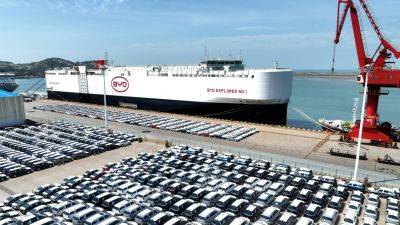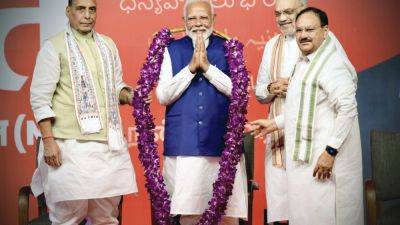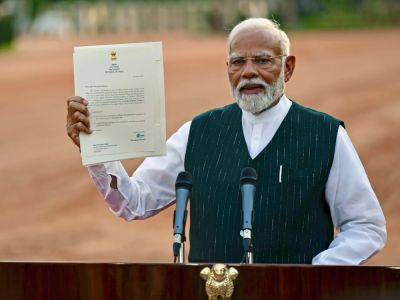Why India shouldn’t try to shut the door on Chinese EV makers
Dealing with climate change is another motivation, one that has prompted India to sign up for the Electric Vehicles Initiative (EVI), a multi-government policy forum to fast track the introduction and adoption of electric vehicles. Thirteen signatory countries have accepted the EVI’s EV30@30 campaign, whereby at least 30 per cent of new vehicle sales should be electric by 2030.
Within India’s passenger vehicle market, which saw nearly 4 million units sold in the last financial year, EVs made up just 2 per cent of overall sales, showing their substantial scope for growth. MG Motor India – the first Chinese EV company to enter the Indian market, and one which has the second-largest share of the country’s passenger EV market – saw 186 per cent year-on-year growth in 2023.
12:53
‘Overtaking on a bend’: how China’s EV industry charged ahead to dominate the global market
In March, India announced a new EV policy allowing foreign companies willing to invest in the country to pay lower duties on the EVs they import until their manufacturing units are fully functional. For firms which make the required minimum investment, the duty on four-wheeled EVs with a minimum value of US$35,000 would be slashed from 70 to 100 per cent to 15 per cent. Such entities would have three years to establish and begin operating a local manufacturing facility, and they would need to localise at least half of the components by the fifth year of production.
In the ports sector, Shanghai-based Zhenhua Heavy Industries Company, previously called Zhenhua Port Machinery Company (ZPMC), came under intense scrutiny a decade ago. It was even denied clearance to supply cranes to Indian port developers such as DP World, Adani Ports and ABG Container Handling.
Sales







